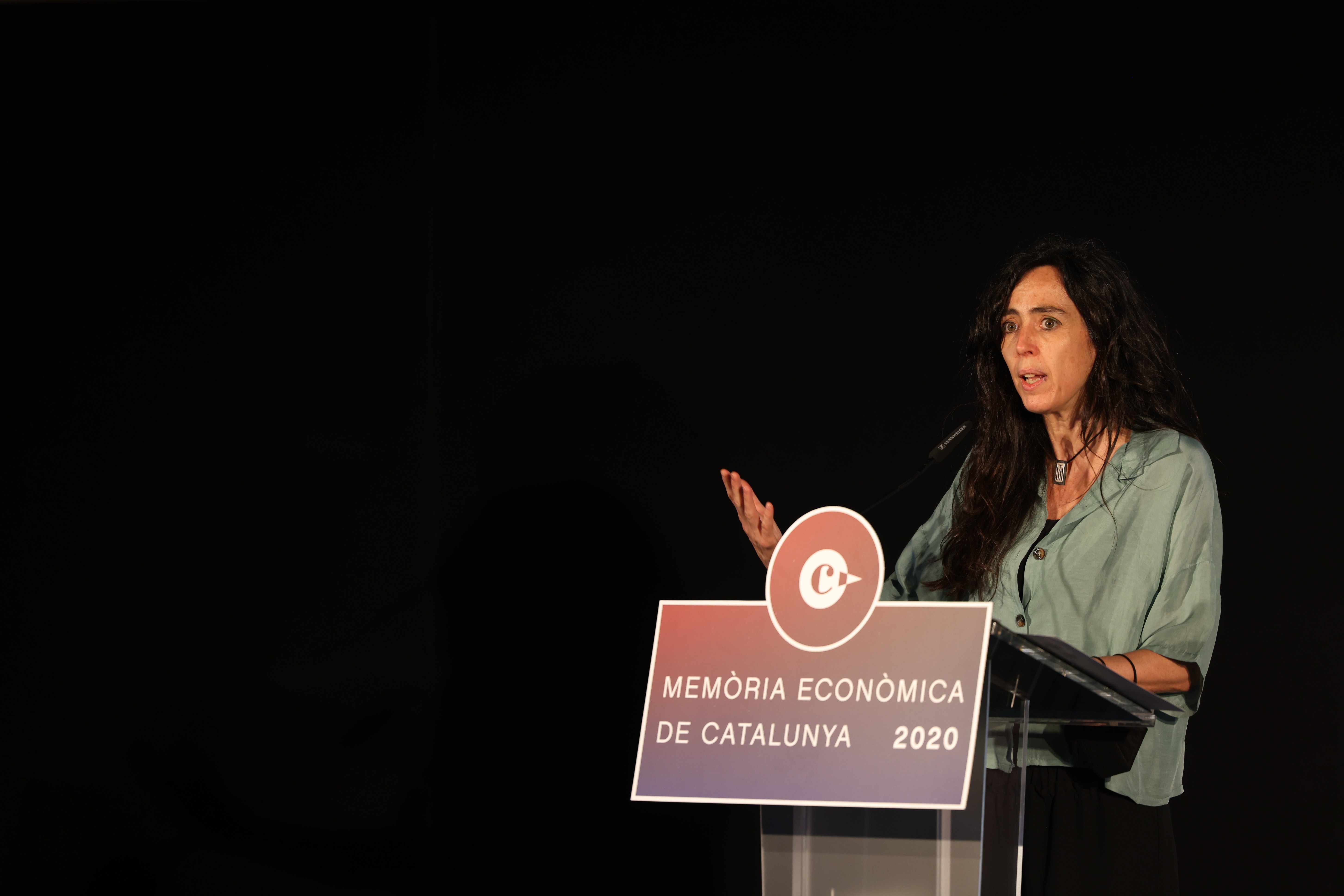Having already glimpsed the light at the end of the Covid tunnel, the big question is when we will return to normal and when we will recover all we have lost economically due to the coronavirus. This is the big question that the Economic Report of Catalonia 2020, presented this Friday morning in Barcelona, is trying to answer.
According to the report, written by a Barcelona Chamber of Commerce team under economist Carme Poveda, Catalonia will recover pre-pandemic GDP levels in the course of 2022, although the recovery will intensify during the second half of this year, when GDP will grow by 6%. There will be three key vectors for this recovery: the recovery of international tourism, the private consumption of Catalan families and the European funds, Next Generation EU.
These are the main conclusions of the report, which was presented in a hopeful context thanks to the good pace of vaccination - which is expected to enable a good economic recovery in the coming months, further Covid developments permitting.
The presentation of the report was chaired by the Catalan president, Pere Aragonès, the Barcelona Chamber of Commerce president, Mònica Roca, and the president of the Council of Chambers of Commerce, Jaume Fàbrega. In addition, the director of the report, Carme Poveda, and the rector of the University Pompeu Fabra, who also worked on the report, Oriol Amat, also took part.
During their speeches, both Roca and Fàbrega again called on the Catalan government - taking advantage of the presence of Aragonès - to pass the new Catalan law on Chambers of Commerce, in order to promote public-private collaboration and give the chambers the backing which they see as necessary.
Uneven impact
One of the characteristics of the Covid crisis that Poveda sought to highlight is its uneven impact, increasing inequality in society, since the crisis had its most severe effects on service sectors such as the hospitality industry, tourism, leisure, transport and trade, and a similar imbalance occurred in terms of social groupings, where the most affected were young people, women and those with temporary contracts. Geographical impact also varied, with Catalonia providing a clear example: the Covid crisis caused a fall of 11.5% in the Catalan GDP, while the average for the entire euro area was a 6.6% drop.
However, the pandemic also accelerated some trends in the economic world. One of them is the re-skilling of the labour market, highlighting the 37.3% growth in highly qualified technical occupations, which is a sign that Catalan companies are committing to talent to improve their productivity. Another trend which has sped up is, of course, the increase in distance working, which has fluctuated depending on the restrictions, but on average has involved about 20% of the workforce.
Yet another acceleration has been the digital transformation of companies. Specifically, according to a survey by the chamber along with Idescat, 35% of Catalan companies have accelerated their transformation as a result of Covid.
Fragile public finances
On the other hand, Covid has also left a legacy of fragility in public finances. For example, the Spanish administration's public deficit during 2020 reached 11% of GDP, while the Catalan government moderated its own deficit to 0.35% of the total Spanish GDP, the lowest figure since 2007.
This fact is due to the arrival of state funds to cover health costs and the operation of the regional funding system. This means that in the coming years the Catalan government's deficit may increase again if the financing model does not change.
The push toward recovery
The report affirms that the recovery of the Catalan economy will begin this 2021, but will continue next year and will depend on three fundamental factors, the private consumption of families, the recovery of international tourism and the arrival, and management of European funds.
According to the report, Catalan families have saved up to 22 billion euros which will be reduced in the coming years, so it is estimated that this year alone up to 3,500 of these millions will go to private consumption. With regard to foreign tourism, the report forecasts out that this year we will recover 50% of the 2019 tourist expenditure, which would mean an economic boost of up to 7 billion euros.
The final growth vector will be from the European funds, of which the first 19 billion euros will soon arrive in Spain, of which the chamber cautiously estimates that 3 billion could reach Catalonia. In total this would mean a boost of 13.5 billion euros.
Below, the Economic Report on Catalonia 2020 (in Catalan):
Main image: The president of the Barcelona Chamber of Commerce, Mònica Roca, during the presentation of the body's 2020 Economic Report on Catalonia.

